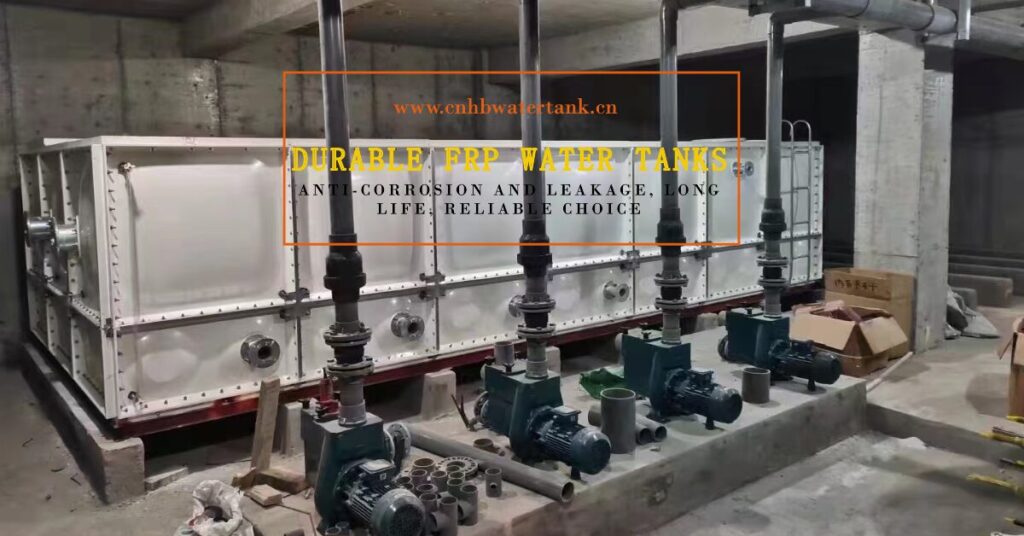FRP water tank: definition and application
As a modern water storage equipment, FRP water tank stands out among many water storage devices with its unique material and structure. FRP (Fiberglass Reinforced Plastics, FRP) is a composite material made of glass fiber and its products as reinforcing materials, synthetic resin as matrix material, and a specific process under the action of a curing agent. This material combines the high strength of glass fiber and the corrosion resistance of resin, making the FRP water tank not only have excellent mechanical properties, but also excellent in chemical stability and aging resistance.

Functional characteristics
Lightweight and high strength: FRP water tanks use lightweight glass fiber as reinforcing materials,
so the overall weight is light, but at the same time it has high strength and can withstand water pressure and the influence of the external environment.
Strong corrosion resistance: Due to the non-metallic properties of FRP itself,
it is not easily corroded by chemical substances in the water, which extends the service life of the water tank.
Convenient installation: FRP water tanks can be modularly designed according to actual needs,
which is convenient for transportation and on-site assembly, greatly shortening the construction period.
Simple maintenance: Due to the characteristics of the material itself, FRP water tanks are not easy to rust or produce other corrosion phenomena, reducing the workload of daily maintenance.
Environmental protection and health: No harmful substances will be released during use, ensuring that the water quality is not polluted, and suitable for storing drinking water.

Application field
FRP water tanks are widely used in many fields due to their excellent performance:
Industrial production: used for the storage of cooling water, industrial water, etc.
Agricultural irrigation: Provide a stable water source for farmland.
Fire protection system: As a reserve of fire water.
Building water supply and drainage: Water supply and drainage systems in residential areas, public facilities and other places.
Environmental protection engineering: Application in projects such as sewage treatment and rainwater collection.
Conclusion
With the advancement of science and technology and the improvement of environmental awareness,
FRP water tanks will play an increasingly important role in future market applications with their unique advantages.
Whether from the perspective of economic benefits or social benefits, choosing FRP water tanks is a wise choice.
